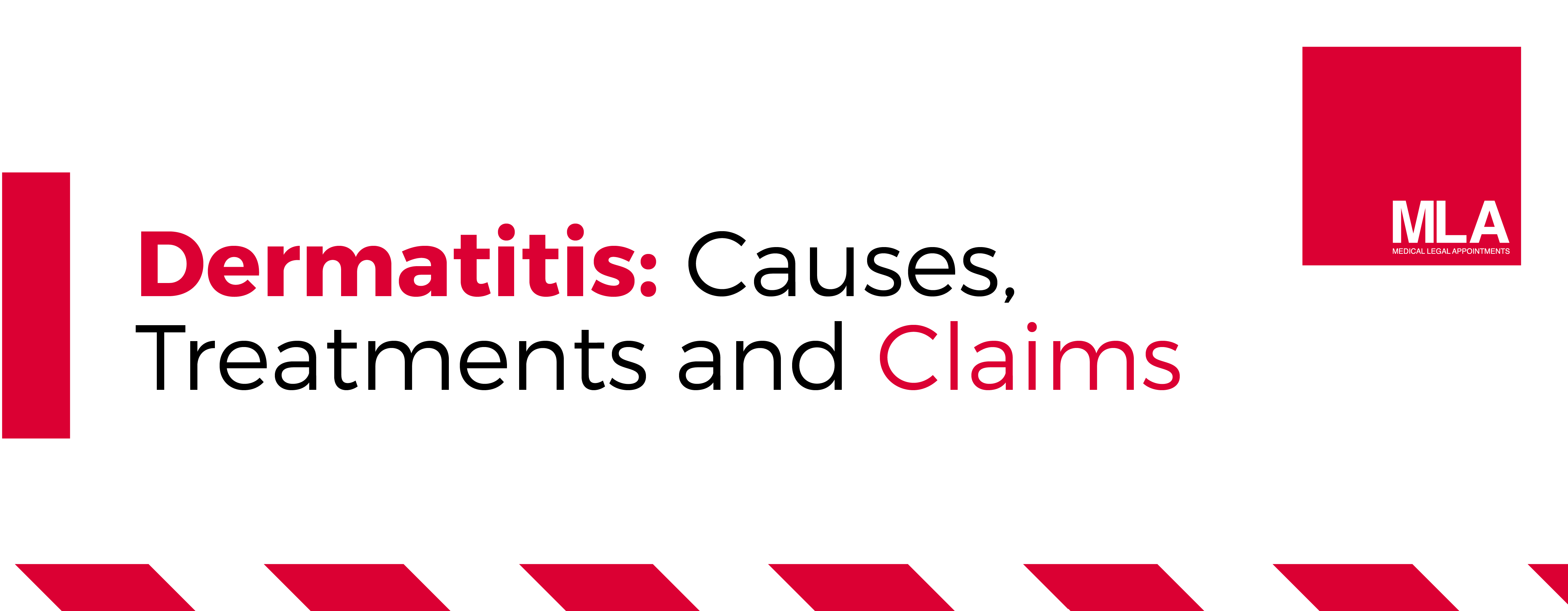Occupational Dermatitis is an inflammation of the skin caused by a person’s contact with certain hazardous substances or because of certain elements of their working environment. As experts in Industrial Disease Medical Reporting, MLA has the knowledge and expertise to gather the medical evidence necessary to assess the extent of these conditions.
What is dermatitis?
Dermatitis is a skin condition that occurs when a substance irritates the skin or causes an allergic reaction. Symptoms associated with the condition include redness, scaling/flaking, blistering, weeping, cracking or swelling. The affected area is often itchy and painful, and as a result, many individuals find they are unable to work.
Causes of dermatitis
There are two types of Dermatitis – Irritant Contact Dermatitis and Allergic Contact Dermatitis – each with varying causes.
Irritant Contact Dermatitis can occur quickly after contact with a strong irritant, or over a longer period from repeated contact with weaker irritants.
These irritants can be:
- Soaps, detergents and shampoos
- Solvents
- Dust
- Acids and alkalis
- Wet cement
It is also possible to develop irritant Dermatitis as a result of repeated and prolonged contact with water. This can occur when a person washes their hands more than 20 times during a shift at work, or has wet hands for more than two hours.
Allergic Contact Dermatitis happens as a result of an allergy to a substance, such as hair dye, adhesives, nickel, some plants and certain wood dusts. Once an individual becomes sensitive to this substance, it is likely to be permanent and any contact with this substance in the future will cause Allergic Contact Dermatitis.
Industries most at risk
Around 40% of Dermatitis cases are caused by contact with foods, including sugar, flour/dough, fruit, vegetables, spices, fish and meats. However, Occupational Dermatitis affects workers in many different industry sectors, including beauty and manufacturing. Cleaners use a whole host of industrial strength cleaning products while production operatives are exposed to coolants, dip tanks and coatings, all of which are harmful to the skin.
How to prevent Dermatitis
Where possible, there are a variety of things you can do to prevent Dermatitis developing, such as:
- Avoiding direct contact with cleaning products, food and water
- Wearing gloves to protect your skin when working with substances that can cause Dermatitis
- Moisturising your hands to replenish the skin’s natural oils
- Checking your hands regularly for the early stages of Dermatitis, including itchy, dry or red skin
How can MLA help with your dermatitis claim?
We’re the UK’s undisputed leaders in Industrial Disease Medical Reporting. Our valuable experience means we have a deep understanding of the unique requirements of these kinds of cases. A Consultant Dermatologist will examine any current skin conditions and your client’s medical history to diagnose whether that skin condition has been caused or worsened as a direct result of exposure to hazardous substances at work.
If you’d like to learn more about this nationwide service please get in touch.

